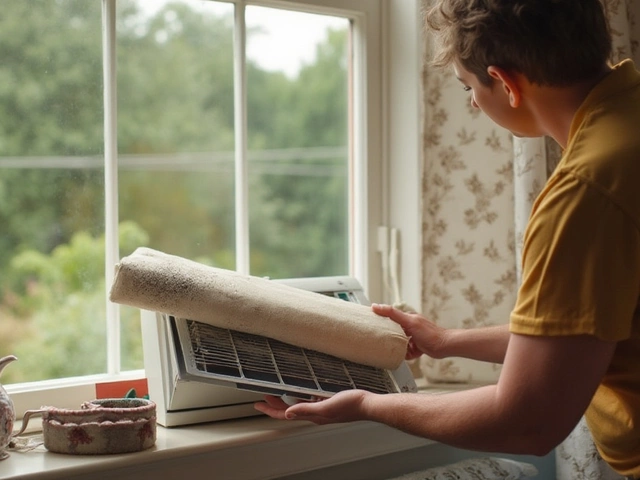Replace Air Filters: Simple Steps to Keep Your Car Running Smooth
Air filters are tiny but they do a big job. They keep dust, pollen, and debris out of your engine so it can breathe easy. A dirty filter makes the engine work harder, hurts fuel economy, and can cause long‑term wear. Swapping a filter is quick, cheap, and you can do it in your driveway.
When Should You Change Your Air Filter?
Most manufacturers suggest checking the filter every 12,000 miles or once a year, whichever comes first. If you drive on dusty roads, in the country, or do a lot of stop‑and‑go traffic, you’ll need to change it more often. Look for these signs: the engine sounds louder, you notice reduced power, or fuel mileage drops noticeably. A visual check is easy – pull the filter out and hold it up to the light. If you can see a dark layer of grime, it’s time for a new one.
Step‑by‑Step DIY Air Filter Replacement
First, gather the right filter for your car model and a screwdriver if needed. Open the engine bay and locate the filter housing – it’s usually a black box near the intake pipe. Most housings have clips or a simple latch; release them and lift the lid. Take out the old filter, note how it sits, then drop the new one in the same orientation. Make sure the seal is snug, close the lid, and re‑secure the clips.
That’s it! You’ve just saved yourself a few pounds on labor and a trip to the garage. The whole process takes about ten minutes, even if it’s your first time.
After you replace the filter, start the engine and listen. It should sound a bit smoother. You may notice a small bump in fuel efficiency over the next few weeks – that’s the engine getting cleaner air and working more efficiently.
If you prefer a more thorough approach, you can clean the housing with a damp cloth before installing the new filter. Make sure it’s completely dry so no water gets into the intake.
Many drivers wonder whether they need to replace the filter every time they get a service. The answer is no – you can keep the same filter for several services as long as it’s still clean. Replacing it only when dirty saves money without hurting performance.
Keep a spare filter in your trunk. If you notice the warning light on your dashboard (some cars have an air‑filter indicator), you’ll be ready to change it right away. A fresh filter also helps protect your engine during winter when road salt and grit are common.
Finally, remember that a clean air filter works hand‑in‑hand with other maintenance tasks like oil changes and spark‑plug checks. Keeping everything in good shape means fewer breakdowns and a longer‑lasting vehicle.
So next time you see dust on the ground, think about your engine’s filter. A quick swap keeps the car happy, the wallet happy, and the road ahead clearer.
 27 January 2025
27 January 2025
How to Know When It's Time to Replace Your Air Filters
Changing air filters regularly is crucial for maintaining the indoor air quality and efficiency of your HVAC system. The frequency of changing air filters depends on various factors including the type of filter, the presence of pets, and air quality concerns. Understanding these factors can help you set a proper schedule for filter replacement. This article discusses the signs to look out for, types of filters, and how different home environments affect filter longevity.
Latest Posts
-

How to Identify a Faulty Air Filter: Simple Tips and Tricks
-

Diagnosing Fuel System Issues: Fuel Filters vs. Fuel Pumps
-

Essential Signs Your Car Is Running Low on Engine Oil
-

Can a Fuel Pump Be Bad and Still Work? Signs You're Driving on a Dying Pump
-

Loudest Exhaust Types: A Deep Dive into Decibels and Roar
Tags
- car maintenance
- engine oil
- spark plugs
- brake pads
- engine performance
- vehicle maintenance
- spark plug replacement
- windshield wipers
- fuel pump
- suspension parts
- clutch replacement
- oil change
- clutch kit
- car suspension
- car performance
- air filters
- car radiator
- exhaust systems
- fuel pump replacement
- engine misfire

0